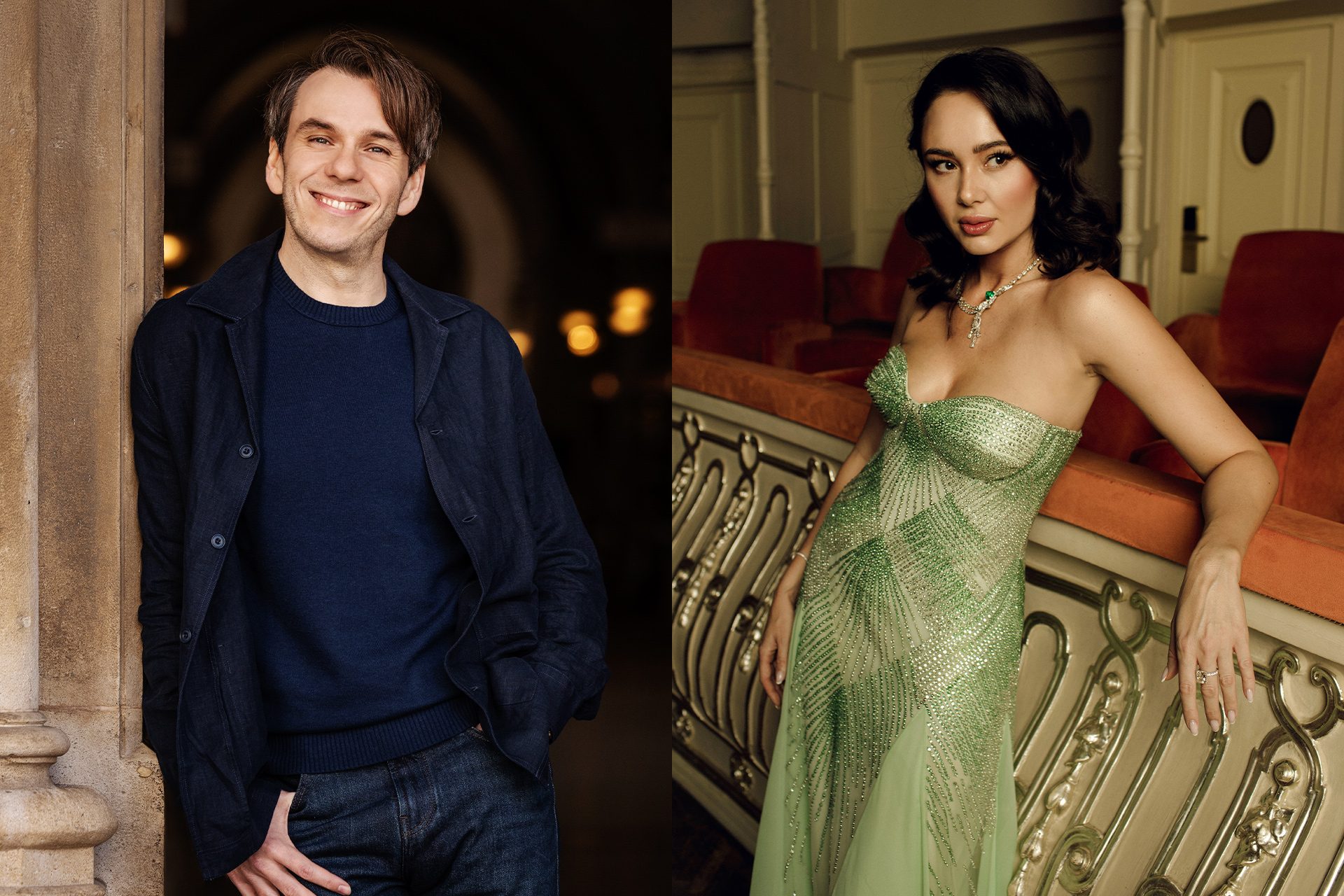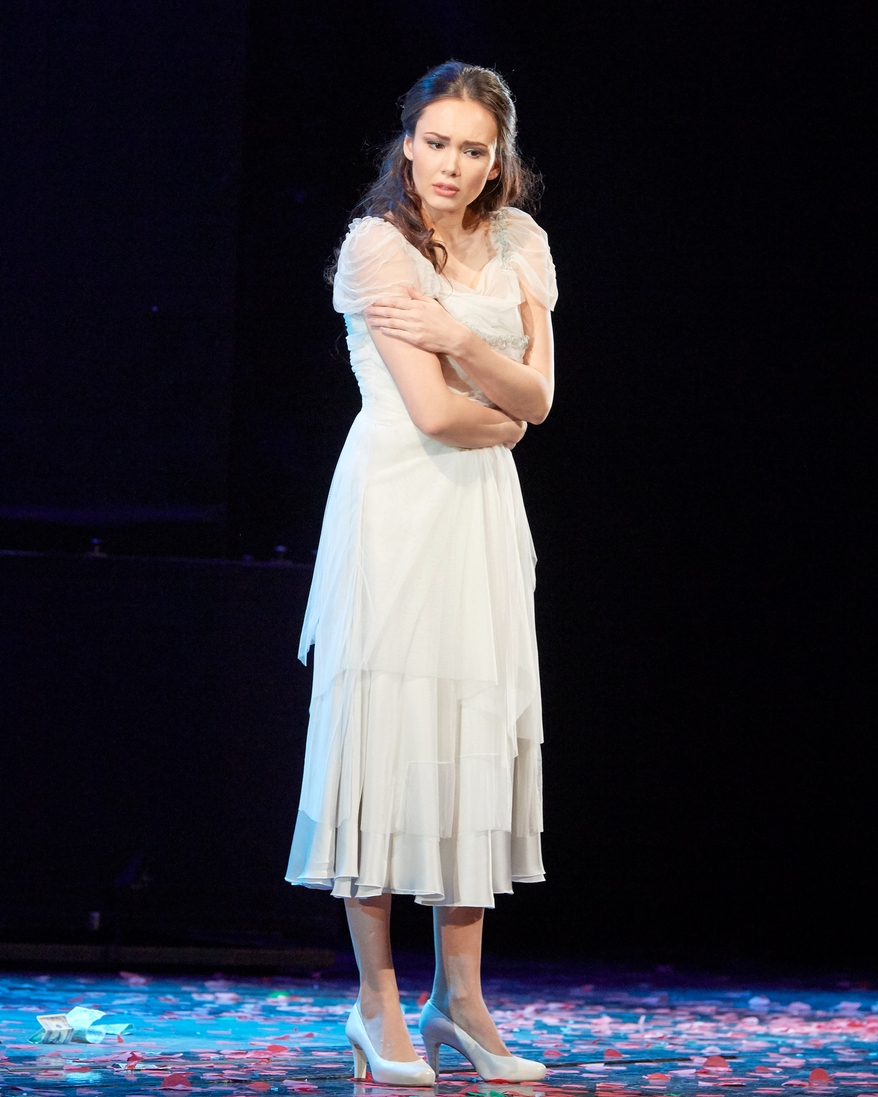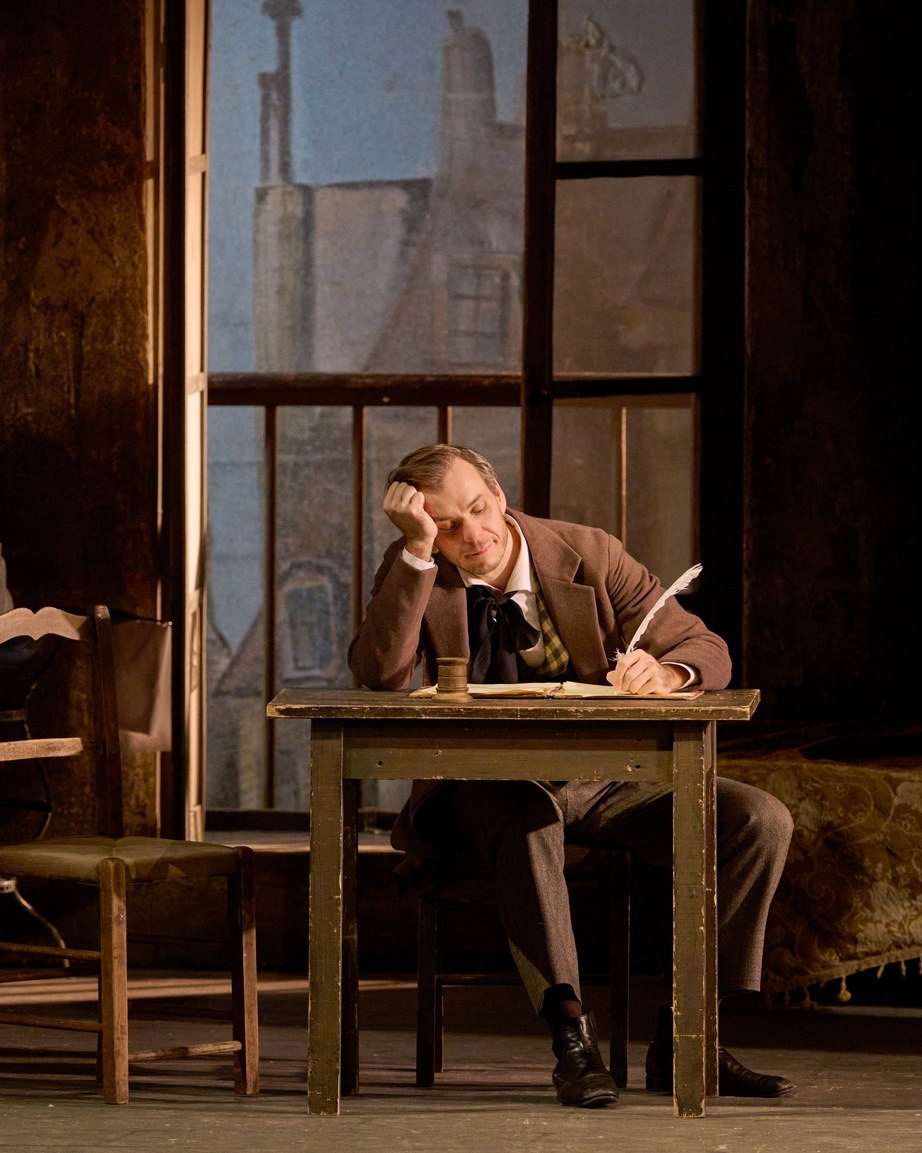What Love Sounds Like
Interview |
When does a singer transform into her role? What does Gounod's Roméo et Juliette have to do with faith? And what does the music tell us about the characters?
Benjamin Bernheim and Aida Garifullina - who sing the protagonists in the opera's May series - talk about this in an interview.
The pair can be seen in the spectacular Viennese production of Roméo, which uses sophisticated lighting architecture to create impressive and atmospherically captivating images.
The story of a young love story tragically doomed to failure by external influences was not new even in Shakespeare's time, but a well-known topos. What is it that has made Shakespeare's version of this plot so successful over the centuries?
Bernheim Shakespeare or not Shakespeare - that's not the question! Because it's not about the time and place in which the plot is set.
It's a story that could have happened anywhere in the world at any time - completely timeless!
Even today, for example in Ukraine and Russia, or in another war zone.
There are so many Romeos and Juliets, so many repetitions of this tragedy. And it will always be like this, there will always be young - and older - couples who fail because of their environment.
This doesn't have to have anything to do with families, it can be about religions, nationalities or anything else.
Romeo and Juliet is not a concrete situation, but a concept of a love story that ends fatally.
Garifullina Love is the most powerful aspect of our lives. And everyone is in search of it. Everyone wants to love and be loved.
Even if love sometimes hurts - and we all know that - we still dream of finding our soulmate or soulmate.
The story of Romeo and Juliet is timeless because it shows us how strong love can be: fearless and boundless.
Two souls found each other and could no longer live without each other. Some people probably say: "Oh, there's no such thing as love."
But I still believe in it. And although the story of these two young people came to an abrupt end, it sent such a strong message to the whole world: To those who hated each other - to open their hearts and forgive. And to those who had stopped believing in love - to believe in it again, no matter what.
The love story has often been set to music - probably the best known is the one by Charles Gounod, in which you sing in May. What makes it so special?
Garifullina The opera is an absolute masterpiece. Every scene, every musical theme is of such beauty! A wealth of harmonies and melodies!
Juliette has two great arias: "Je veux vivre", one of the most famous opera arias ever, and of course the great and challenging poison scene, which always moves the audience to tears.
Plus the magical duet "Nuit dʼhyménée", which shows a wide range of emotions between two lovers, warmth and fear, passion and courage.
Bernheim Yes, Gounod's operatic version of the material is simply perfect. The music is so romantic, so enchanting, but also fresh and young. A masterpiece indeed!
One special feature is certainly that Gounod, who was very religious, was not only interested in a story between two people.
It was also about their relationship with God and their responsibility with regard to family and faith.
Because when a man or a woman says, as in this opera, "I love you in the face of God", it is not just "I love you".
It involves God. And although fewer and fewer people visit churches, synagogues or temples today, I find it very important to see that a love story not only takes place here between two people, but that there is also a connection - not to a religion, but to a faith
exists. For Gounod, one thought was very important: God is always there. So there is also something spiritual in this story.
Gounod also wrote a lot of church music - is that noticeable in Roméo et Juliette?
Bernheim When I was younger, I sang a Gounod mass and therefore know his approach to church music.
Of course, you can tell from the opera that he was familiar with church ceremonies such as weddings and funerals.
And you can tell - as I said earlier - that the relationship between God and man was important to him.
What we must not forget in this context is that we are in a time when the church and religion played a major role in society.
The audience at the premiere therefore recognized itself in these aspects.
I would say that the majority of French people were Catholic at the time - and so that played a corresponding role.
In one of his books, the Nobel Prize winner for literature Kazuo Ishiguro raises the idea that art can express a person's true soul. When we listen to the singing of Juliette and Roméo: What can we learn about the innermost essence of these characters?
Garifullina That always depends on the singer, of course. Because every soprano will interpret the music in her own way.
The composer has given us his vision in the score. But how we interpret the notes is entirely up to us.
When we talk about Juliette - she is an open-hearted young woman. She believes in love and trusts the man she loves.
No matter how destructive the relationship between their families is. She only listens to her heart, which tells her: Allow yourself to love. Allow yourself to make mistakes. Even if the decision is crazy.
Love is always worth it.
Bernheim I think Roméo is a bit younger than Juliette in terms of his psyche. We keep saying that women mature earlier than men - and that's certainly the case here. The moment Juliette sees Roméo for the first time, she already knows the end. She already sees the tragedy, the death. Juliette is a realist, whereas Roméo lives in the clouds.
He dreams, dreams and dreams. He is full of hope, futile hope, he is romantic, sees happiness together.
And stays in his dream world.
So she is an adult, he is a teenager.
As far as the music is concerned, there is sunshine and light in his singing. Incidentally, you notice a big change in Roméo's music: at first he doesn't feel like it, is sad, finds no joy in existence. But then he sees Juliette - and everything changes. We hear major, a positive sound, and we experience in the music what love at first sight can do to our hearts and minds.
And that is precisely why Roméo is so beautiful to sing: there is lightness, romance and exuberance.
Does Gounod understand voices? Do Juliette and Roméo have good voices?
Bernheim The great thing is that Gounod not only had a great talent for writing for voices, but also knew how to draw roles. What does that mean?
His Roméo and Faust, for example, are very different: Roméo is lighter, Faust more negative, darker.
Because the respective characters demand precisely these colors. Both are very well written!
I enjoy Roméo more, for me he's perfect!
I think I've already used the word masterpiece..
Garifullina The Juliette is good!
The first aria is tricky because it's written in a very high tessitura, although I usually adjust to a different way of singing at the beginning.
Apart from that, I am a lyric soprano.
The great Viennese critic of the 19th century, Eduard Hanslick, criticized Gounod's Roméo et Juliette for being too lyrical and not bombastic enough. Is this a weakness of the work?
Garifullina I think Hanslick was wrong here.
But how many great artists were also severely criticized at that time!
Or didn't get the recognition they deserved.
As I always say to myself: "So many people, so many opinions."
Bernheim I think that's a quality! Because the play, the plot, is lyrical. Roméo et Juliette is about two young people who find a great, intimate connection with each other. It may well be that Hanslick felt it was "too lyrical", but the composer basically set the essence of the story to music - so it wasn't unintentional, but quite deliberate. There is also drama, but not everywhere. And how fantastic are arias like "Ah, lève-toi soleil"!
Sure, it's lyrical, but that's Roméo's world..
I compare the opera once again with Faust: there's more drama there, but that's a completely different story. With regard to Roméo et Juliette, Gounod found exactly the right balance.
At the beginning of the opera, Juliette needs a great lightness and good high notes, the voice must reach up to a high D. Then it becomes more dramatic and deeper: do you basically need two voices?
Garifullina I think we only have one voice.
But the whole role definitely requires different techniques. From the light coloratura soprano at the beginning of the opera to lyrical and even slightly dramatic vocal colors towards the end - long breath, a different sound texture, more volume, more colors and fullness and a rounder sound.
Every work has its challenges and its parts that you particularly love. What are these for you in Roméo et Juliette?
Bernheim Before the "Nuit dʼhyménée" duet by Roméo and Juliette, there is an orchestral passage with a cello solo: for me, that is the essence of this entire story. In my imagination, this is Roméo et Juliette: lard and love, songfulness and romance. Perfect!
Is there something like a transformation routine for you before the performance? When do you become Roméo or Juliette? From when you sing in?
Garifullina The moment I wake up on the morning of the performance, I slip into the role. I don't play Juliette - I become Juliette. As if I were playing myself. I don't change for a role. That's not necessary, because I'm an actress and can embody different characters. My body language adapts to the different personalities - and they will all carry my soul and my heart.
Bernheim I think the transformation already takes place during the first rehearsal at the opera. When I am in a city and sing Roméo, I am Roméo for the whole period. Of course, I do that with all roles: When I sang Werther, it was me for the whole period. But since Werther is very dark and sad, my personal mood was the same. Not so pleasant... But when I sing Roméo, my mood is lighter. And that from the first rehearsal.


